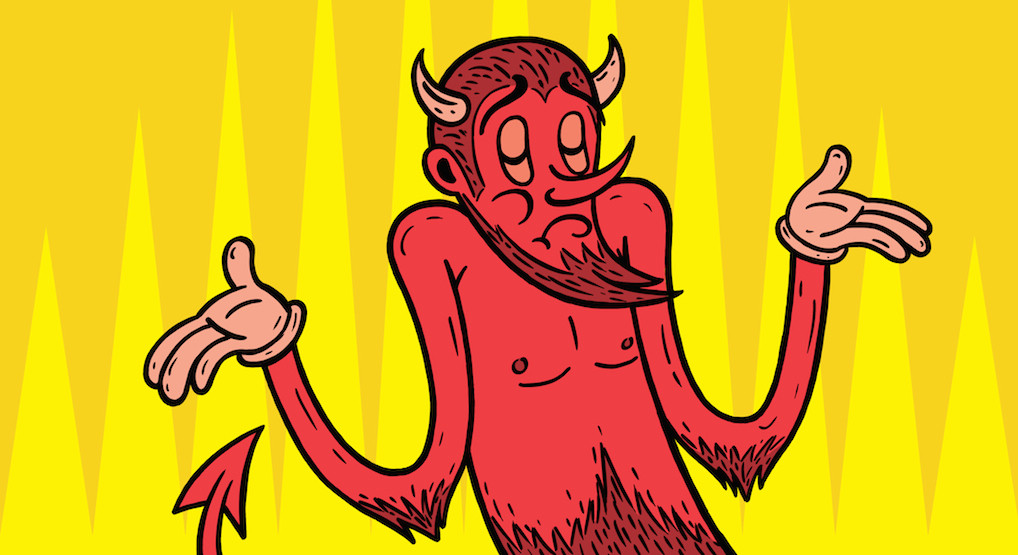Small Talk
If a value falls in a forest and nobody hears it, does it exist?
Apathy, maybe second only to snark, is the supposed scourge of our generation. Sure, we’ve got hashtag activism and viral insert acronym bucket challenges, but it’s much easier to double tap a photo or share a status than it is to canvas tirelessly, show up in the cold to protest or call friends out on their problematic behaviour.
Comedian Louis C. K. has a bit about watching a uniformed soldier board his flight and momentarily considering giving up his business class seat to this young veteran, who has, presumably, fought valiantly for his nation. C.K doesn’t, in the end, give up his seat, but just having had the thought sustains him and makes him feel like a good person.
Values are kind of like that. Having them makes us feel good but doesn’t count for much unless we’re committed to acting on them and living accordingly – particularly when to do so requires an element of personal risk or bears social consequences.
Like most people, I stayed quiet on the topic of my former abuse and abusers, not wanting to take up space, not wanting to ask of my friends to “pick a side.” This means I also quietly stood by and watched the oppression of others, because I didn’t want to “get involved,” until one day I realized that this was a cop-out. We are, sometimes, too easy on ourselves. We give ourselves an easy out.
You can – and should – demand of the people who love you to, at the very least, not condone or associate with those who have caused you physical or psychological harm. It is, really, the least we can do for one another.
Letting someone know you see and believe their pain, that you respect their right to bodily safety, to psychological ease, more than your own momentary awkwardness, requires so little of us, but reverberates in others. No longer supporting abusive bands, artists and people requires a bit more courage, and a lot less apathy. As venues or organizations, no longer booking these individuals requires even more still.
What incentive do abusive people have to stop being abusive, if they experience zero consequences in response to their behaviour? How does an ignorant person recognize problematic behaviour if no one is willing to enlighten them? Listen, no one likes conflict. But I’ll say it again: silence is complicity. Bystanders force marginalized or oppressed people – those who experience or have experienced racism, sexism, image or ability based discrimination – to have to educate or confront their offenders repeatedly.
Sharing that Jian Ghomeshi article isn’t doing the work. Neither is tweeting about #oscarssowhite. The work is telling someone that their behaviour sucks and that it won’t go unnoticed, which isn’t the same thing as maliciously hurting someone. And as long as we keep pretending they are equivalent, because the former makes us uncomfortable, we’re prioritizing our feelings and the feelings of bullies over those with considerably less power. Don’t be that person. Give up your seat.
Dunja Kovacevic is a writer and co-founder of Dear Journal, a bi-annual print anthology that centres the lived experiences of women and non-binary individuals. Connect with them on Instagram: @dearjrnl.
Published in Volume 70, Number 23 of The Uniter (March 10, 2016)







